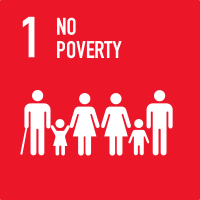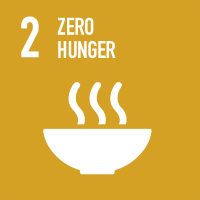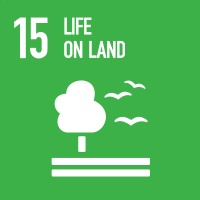Studying at the University of Verona
Here you can find information on the organisational aspects of the Programme, lecture timetables, learning activities and useful contact details for your time at the University, from enrolment to graduation.
Type D and Type F activities
This information is intended exclusively for students already enrolled in this course.If you are a new student interested in enrolling, you can find information about the course of study on the course page:
Laurea magistrale a ciclo unico in Giurisprudenza - Enrollment from 2025/2026| years | Modules | TAF | Teacher |
|---|---|---|---|
| 4° 5° | Università e DSA – Metodi e strategie per affrontare lo studio ed il percorso universitario (Edizione 2023) | D |
Fabio Ferrari
(Coordinator)
|
Agricultural law for development and innovation (2023/2024)
Teaching code
4S011638
Teacher
Coordinator
Credits
6
Also offered in courses:
- Comparative agri-food law of the course Combined Bachelor's + Master's degree in Law
- Comparative agri-food law of the course Master's degree in Law for Technologies and Sustainable Innovation
Language
Italian
Scientific Disciplinary Sector (SSD)
IUS/03 - AGRI-FOOD LAW
Period
1° periodo lezioni (1B) dal Nov 6, 2023 al Dec 15, 2023.
Courses Single
Authorized
Learning objectives
The course aims to provide students with a basic preparation on agricultural law, emphasizing its purposes and role in the realization of man's essential needs and its connection with various human rights. The main characteristics that give agricultural law its own identity will be identified and the main institutions relating to access to and management of the natural and technological resources necessary for agricultural activity will be presented; the organization of the agricultural enterprise and to solve the problems of scarcity of some natural resources such as land and water; to access technological advances and genetic innovations, among others. At the same time, the adaptation of the various institutes and agricultural regulations to the needs of economic, social, environmental and rural development will be highlighted.
The student will acquire the basic knowledge that will allow him to interpret the productive reality in the context in which he will carry out his profession and formulate, independently and critically, judgments and arguments on the main topics covered by the teaching.
The course aims to show the dynamism and adaptability of agricultural law to different local realities; to the different levels of development achieved or pre-established, to the geographical, ecological and climatic conditions and to highlight the role of agricultural activity and agricultural law as a discipline transforming the economic, social and environmental reality.
Prerequisites and basic notions
There are no specific prerequisites.
Program
1) Agricultural law, evolution of the object, purposes, principles and institutions Goal 1; 2 and 12).
2) Agricultural activity and agricultural business. The biological cycle and the characterization of agricultural activities. The specific regime for the farm and farmer.
3) Agricultural law as a tool for transforming the productive reality and the needs of society. The Common Agricultural Policy and its evolution. The role of the market. Rural development and sustainable development (Goal 1; 2; 12 and 15).
4) The role of contracts in agriculture and innovation in contracting:
- Agricultural contracts: historical overview and contracts in force (in particular agricultural tenancy agreement and "soccida" without transfer of land).
- Contracts in the agri-food chain.
5) The company, its goods and the special regimes for the various goods needed in agriculture:
- Discussions on land rights, land use and rural land grabbing. Main typical institutes in the field of agricultural property. The special forest regime.
- Discussions about the right to water, its use in agriculture and drought.
- Discussions in relation to biodiversity, access and the right to modify it. Property rights and farmers' rights (Goal 15).
- Access and use of technology and information and data management.
- Other special legal systems for goods used in agriculture. The current debates on fertilizers and plant protection products.
6) Special regimes of production and valorisation of products (Goal 12):
- Organic and sustainable production;
- Designations of origin; geographical indications; traditional specialty and other quality systems.
Bibliography
Didactic methods
The teaching of the course includes frontal lessons, equal to 6 credits, delivered in Italian.
In parallel, complementary study materials and supplementary activities will be offered on the Moodle platform (forum), as well as presentations and debates held during the lesson timetable. During the discussion of topics relating to agricultural activities, business and contracts, exercises for the resolution of practical cases (PBS) will be proposed. Students will be able to produce, optionally, a final paper (no more than 3000 characters) on the topics covered in points 5 and 6 of the program.
Non-attending students will have to study all the points of the program using the proposed bibliography and the material uploaded to the Moodle platform.
All students, whether attending or not, are invited to make an appointment for a reception in case of doubts and also before the exam, in the presence of any legislative updates.
Learning assessment procedures
The evaluation will be carried out through an oral exam in Italian.
For attending students, who have voluntarily created the paper and whose first formal evaluation will take place during the lessons, the exam will consist in the presentation of the thesis and in the administration of questions relating to points 1 to 4 of the program.
Attending students who have not completed the paper and non-attending students will take an oral exam on the content of the entire programme.
Evaluation criteria
The evaluation will take place through the following criteria:
- the depth and breadth of knowledge gained;
- language property;
- analytical and argumentative skills;
- the capacity for critical reflection.
Criteria for the composition of the final grade
The final evaluation is expressed in 30ths. The attribution of the honors is linked to a complete control of the discipline, to an excellent property of language, of analytical and argumentative skills as well as to a capacity for critical reflection on the legislation.
100% of the vote will result from the outcome of the exam according to the criteria mentioned.
Exam language
Italiano.




